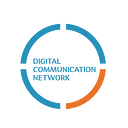Unlocking the truth with digital literacy
Key points by Ioanna Georgia Eskiadi
In this webinar, we discussed the importance of digital literacy, especially media literacy, in new media and ways to combat disinformation and engage and empower communities. Africa is a continent with different disinformation and digital background than in Europe. In Africa disinformation is mostly spread through messaging apps and platforms like WhatsApp. Africa is impacted by modern communication technologies. The information space is being reshaped, presenting both tremendous opportunities for the democratization of communication, but also challenges have materialized in disinformation and other malign forms of influencing. While media outlets attempt to keep up with technological advancements and trends, fact-checking alone is not sufficient to combat disinformation. The filters of information, such as social media platforms and other influencers, also play a role in shaping today’s media landscape.
It´s important to understand digital tools so that we can engage better digital communities globally and import accurate information. Disinformation in Africa is around politics and political mobilization, and especially around developing deliberate campaigns. Disinformation is centralized on economics, and is spread and disseminated through social media, which imposes great risks in democracy and policy-making process by manipulating public opinion. Also, disinformation creates political polarization and distrust and poses a threat to liberty. In Africa, people are restricted in accessing information, but digital space offers much more information that people can easily navigate. In Africa, there’s left-wing disinformation and there is not a clear divide to determine who is more susceptible.
In terms of digital literacy, it’s important for people to understand that what they see is different from what exists. There’s a need for active audience participation to combat disinformation and engage communities. It’s important to ask questions about the news and to check that most of the information is fact-checked. Disinformation is spread mostly through WhatsApp, in close communities. The impact of disinformation depends on social-economic inequalities, levels of democracy, liberalization, politics, education, and the trust of institutions. Digital literacy empowers citizens and people on individual verification and on what they share. People tend to believe what they see and do not investigate. There’s a need for more media information, and for everyone to be able to understand what is happening. A lot of the time, media repeat claims without fact-checking. Platforms themselves should not be able to distribute information that is fake.
Key points
· Help people find sources.
· Citizens are able to access information.
· Empowering citizens is the media’s responsibility.
· Address media literacy in Africa.
· Need for access to information and tools, and interaction with media.
· Comprehension, evaluation, and critical thinking of information.
· Creativity and engagement especially for young children.
· Digital media literacy gives the chance for two-way communication with audience.
· Schools and universities help people to understand digital literacy.
· Young people need to understand the tools they use.
Speakers and Moderators:
Joan Chirwa is the Founder and Coordinator of Free Press Initiative from Zambia.
Dr. Sam Kamau is Lecturer in Aga Khan University and Graduate School of Media and Communication from Kenya.
Prossy Sheila Kawala is the Director for Media Initiatives of the Center for Media Literacy and Community Development from Uganda.
Amanda Strydom is Program Manager on Senior Program Manager: Civic Signal and Engagement in Code for Africa from South Africa.
Nikos Panagiotou is Associate Professor of School of Journalism and Mass Media Communication in Aristotle University, Digital Communication Network Global from Greece.
Aurra Kawanzaruwa is the Director of Africa is Digital and Board Member Digital Communication Network Africa from Zimbabwe.
This event is co-organized by the Digital Communication Network Global, DCN Africa and World Learning and is part of a series of virtual events launched in the context of the COVID-19 crisis. The series aims to engage digital communities globally, to promote accurate information, combat distortions, encourage responsible behavior, and discourage panic, support mitigation of a global pandemic, and avoid major societal disruptions. DCN Global is supported by the U.S. Department of State Office of Citizen Exchanges.
DCN is a consortium of non-profits, public and private organizations and companies involved in the fields of digital communication, social impact campaigns, technology, and innovation. It is a unique, interdisciplinary coalition tapping into the best talent and resources across Europe.
